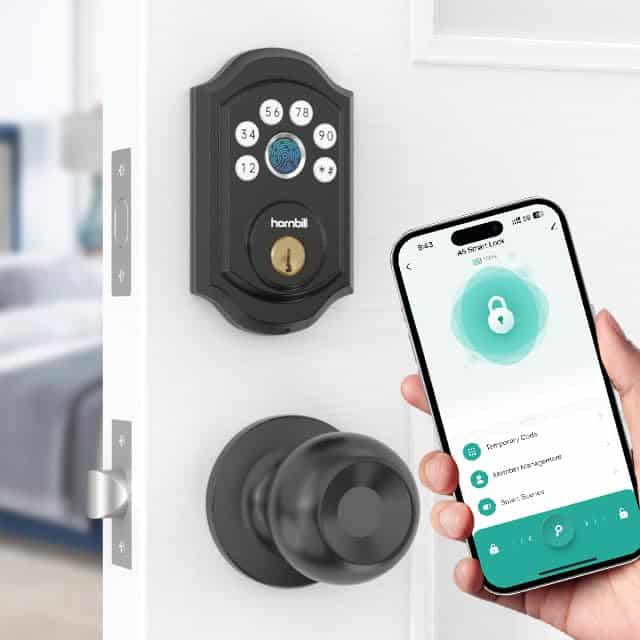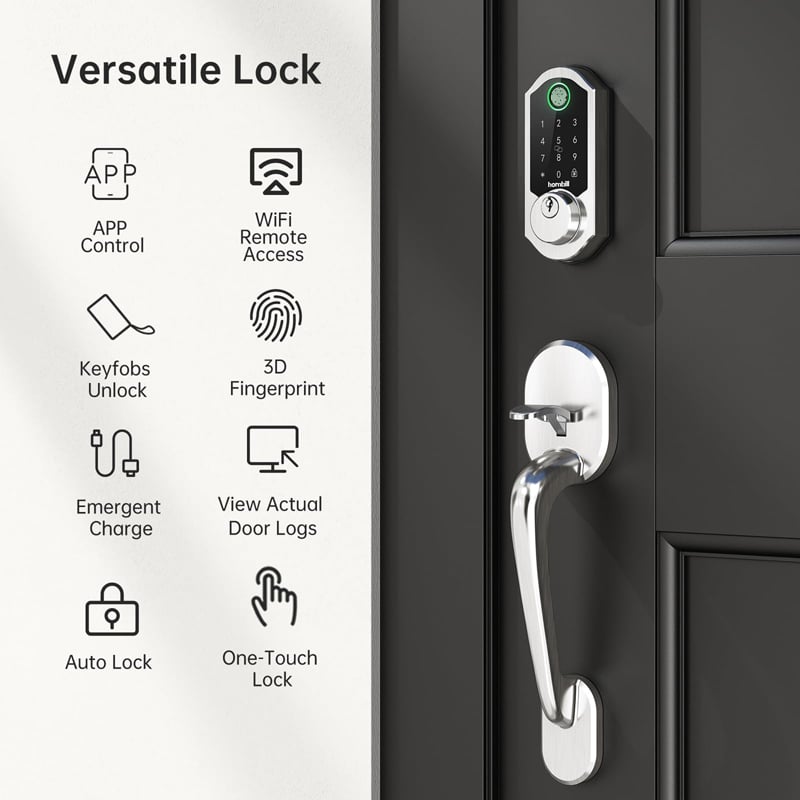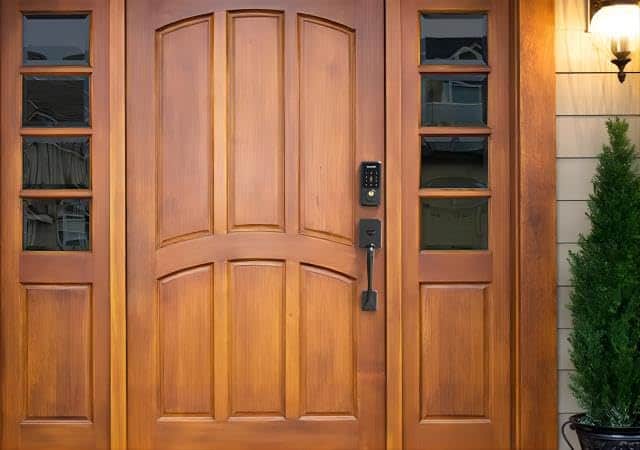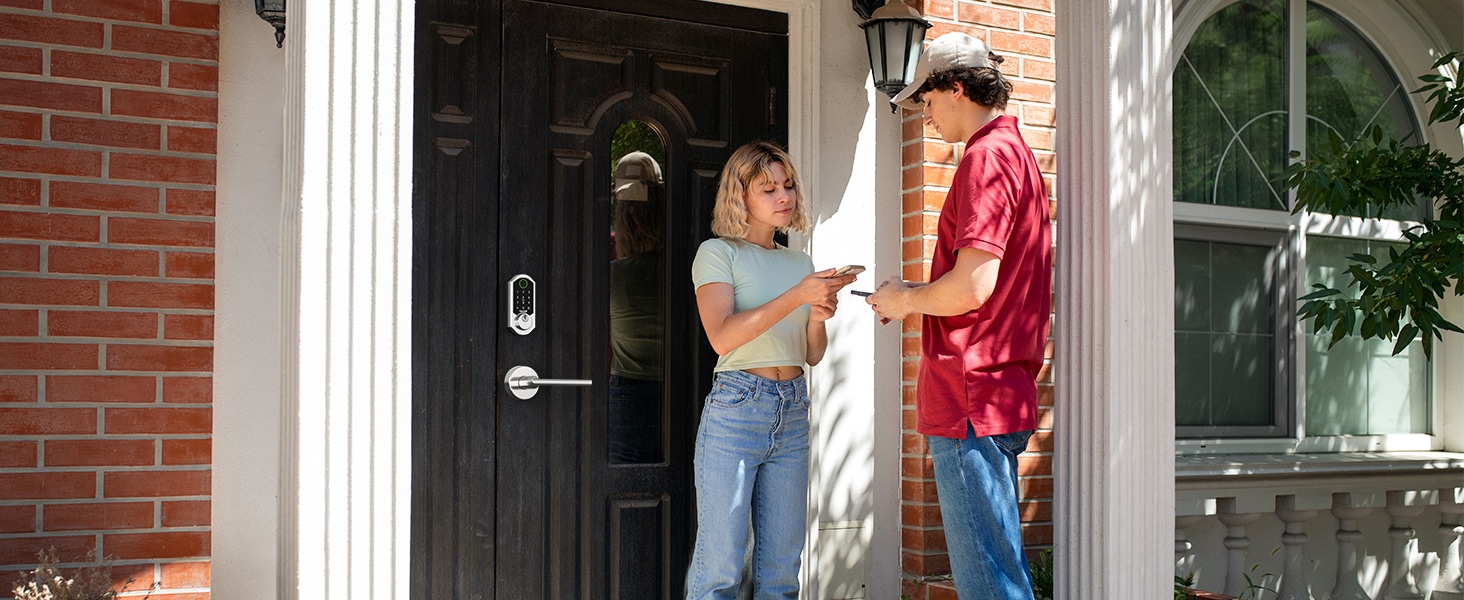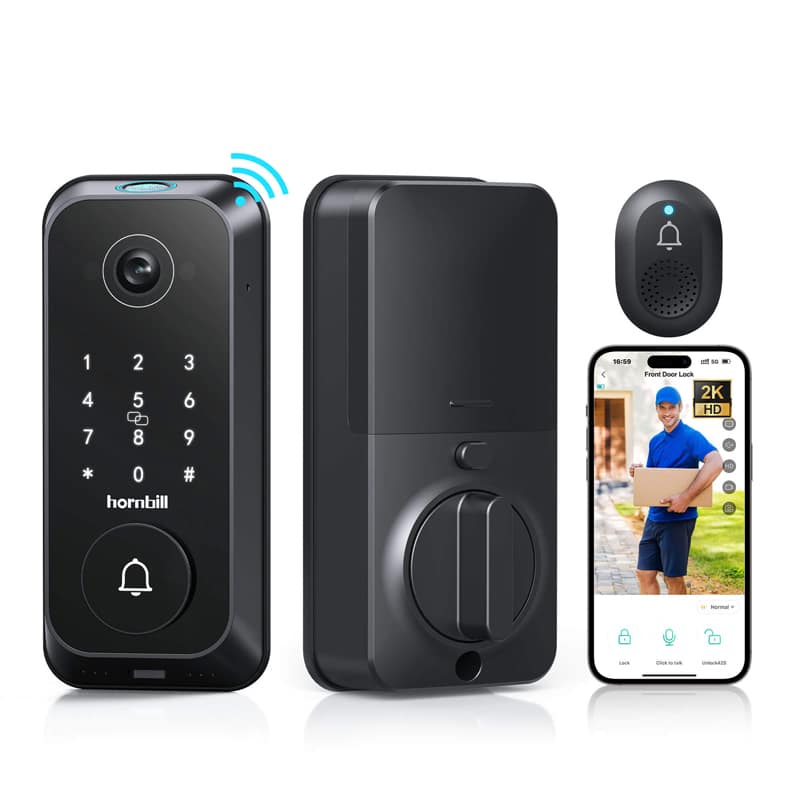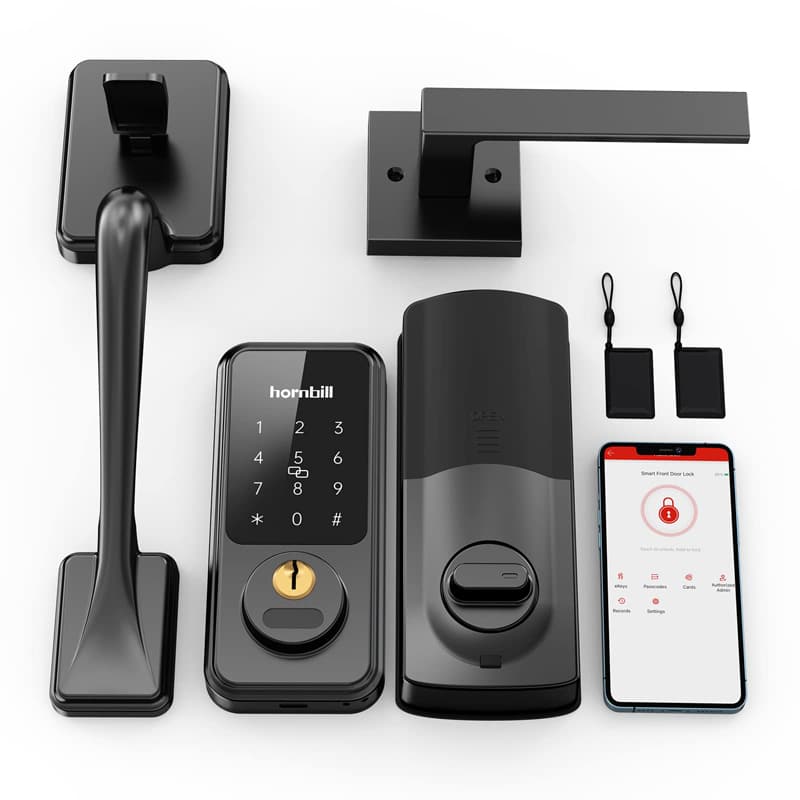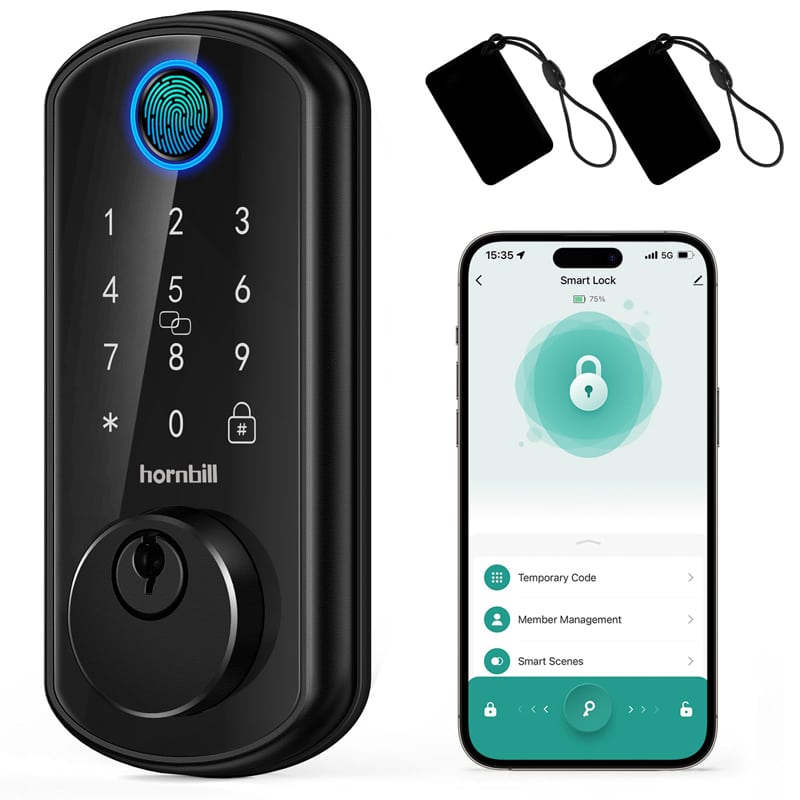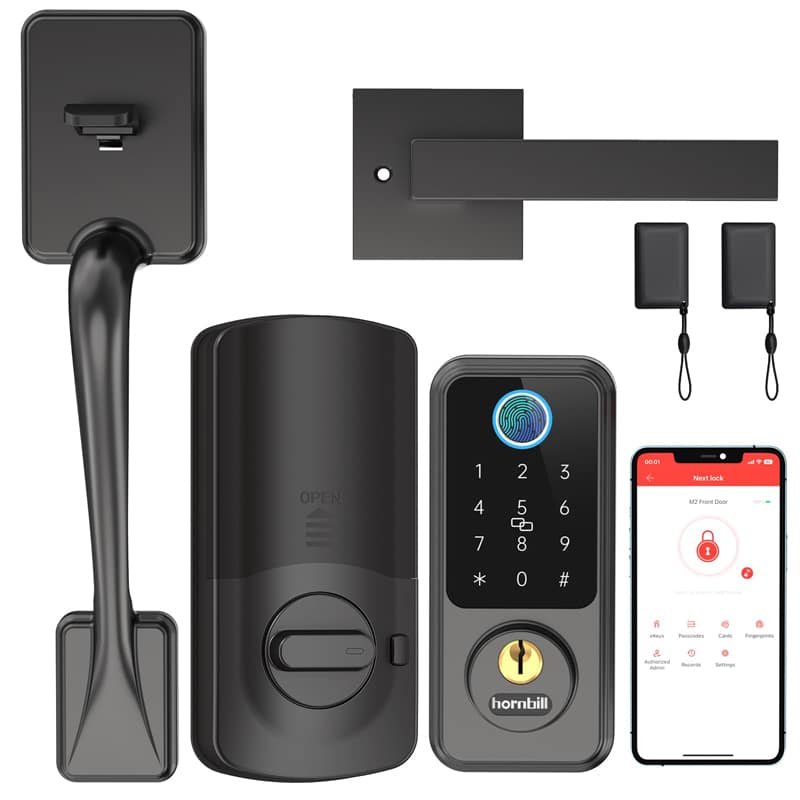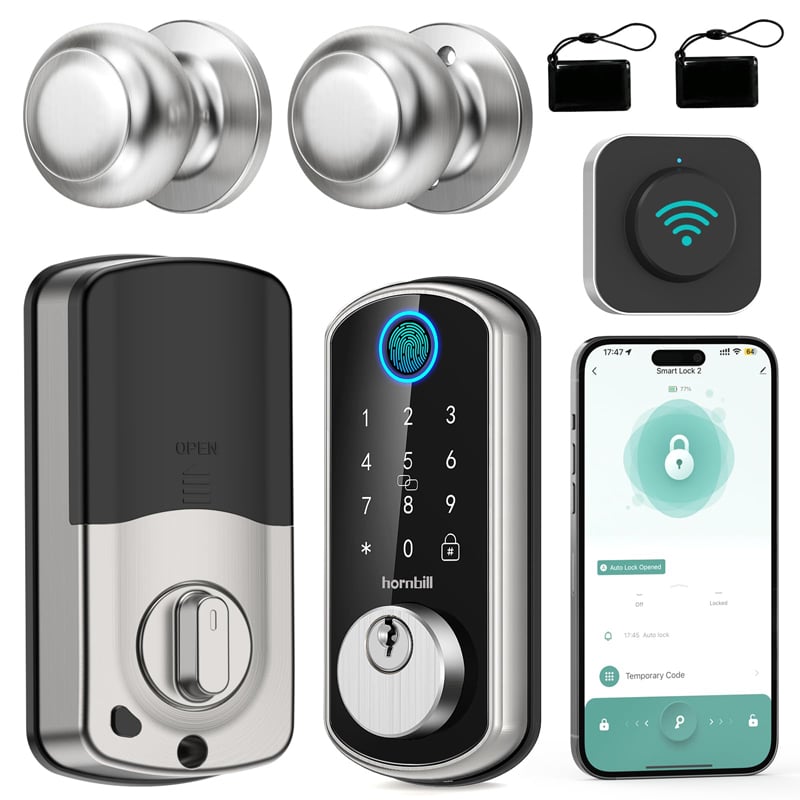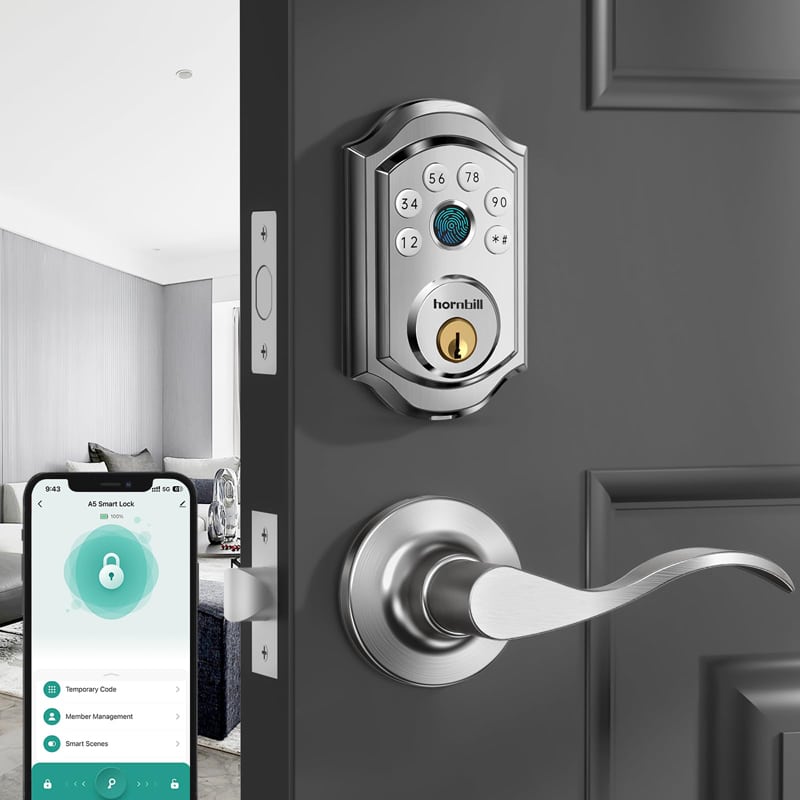One of the most critical yet often overlooked aspects of keypad door locks is the battery life that powers them. While these devices offer convenience, security, and ease of access, their continuous operation depends entirely on their power source. Understanding the longevity and maintenance of these batteries is essential for ensuring the smooth, hassle-free operation of your keyless keypad door lock.
Types of Batteries Used in Keypad Door Locks
Most home keypad door locks are powered by either disposable or rechargeable batteries, typically AA or AAA types. The specific battery type and lifespan can vary depending on the lock model and usage habits. For instance, some of the best electronic keypad door locks come equipped with energy-efficient features, while others might consume more power due to advanced functionalities like Bluetooth or fingerprint keypad access.
Battery Life Expectancy
The average battery life of a Bluetooth keypad door lock ranges between 1 to 3 years under normal usage conditions. However, locks that experience higher traffic may require more frequent battery changes, approximately every 6 to 12 months. The fingerprint keypad door lock, for instance, tends to drain more power because it uses biometric technology. While these are general estimates, actual battery performance can be influenced by several factors, including usage frequency, battery quality, and environmental conditions.
Factors Affecting Battery Life
Several variables can impact the battery life of keyless keypad door locks. For example, cold weather can cause batteries to deplete faster than usual. Additionally, locks with Wi-Fi or Bluetooth features for remote control will naturally consume more power. Regular use of these advanced features, while convenient, may lead to more frequent battery replacements. This is especially true for locks offering multiple entry methods, such as PIN codes, keycards, and fingerprint keypad door locks.
Battery Management Features
Thankfully, many newer models have battery management features to make maintenance easier. For instance, locks like the best electronic keypad door lock offer low-battery indicators, which trigger visual or auditory alerts when it’s time to replace the batteries. Some models even allow you to connect an external battery as an emergency power source if the internal batteries run out completely.
Tips for Extending Battery Life
To maximize the battery life of your home keypad door locks, it’s essential to consider the following:
- Use high-quality batteries: Investing in premium disposable or rechargeable batteries can significantly extend the lifespan of your lock.
- Monitor battery indicators: Pay attention to any low-battery warnings your lock provides, ensuring you replace the batteries before they die.
- Minimize power-hungry features: If possible, limit the use of Bluetooth or Wi-Fi functions to conserve energy.
- Consider the climate: Cold weather can negatively impact battery performance, so you may need to replace batteries more frequently in colder environments.
Why Regular Battery Maintenance is Important
The convenience of keypad door locks cannot be overstated. However, proper maintenance of the batteries is crucial to ensure seamless and secure access to your home. Failing to replace the batteries on time could leave you locked out, especially if your lock lacks an external power option. Regularly checking battery life and replacing them before they run out will keep your Bluetooth keypad door lock running smoothly.
Conclusion
In conclusion, while keypad door locks offer advanced security and ease of use, their performance hinges on proper battery maintenance. Keeping an eye on battery life, using quality batteries, and considering the environmental factors that may affect them will ensure that your keyless keypad door lock continues to function optimally. Incorporating these practices into your regular home maintenance routine will allow you to enjoy the full benefits of your lock without unexpected interruptions.
By ensuring that your best electronic keypad door lock remains powered and operational, you can take full advantage of its features and maintain the security of your home.

